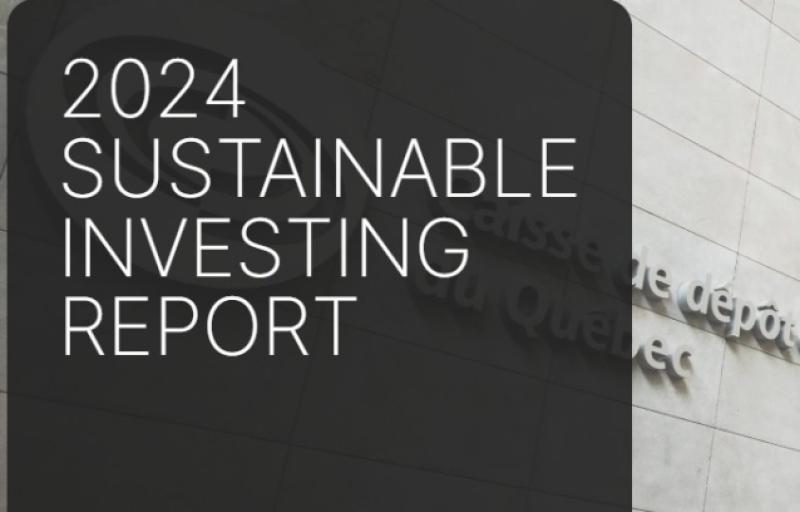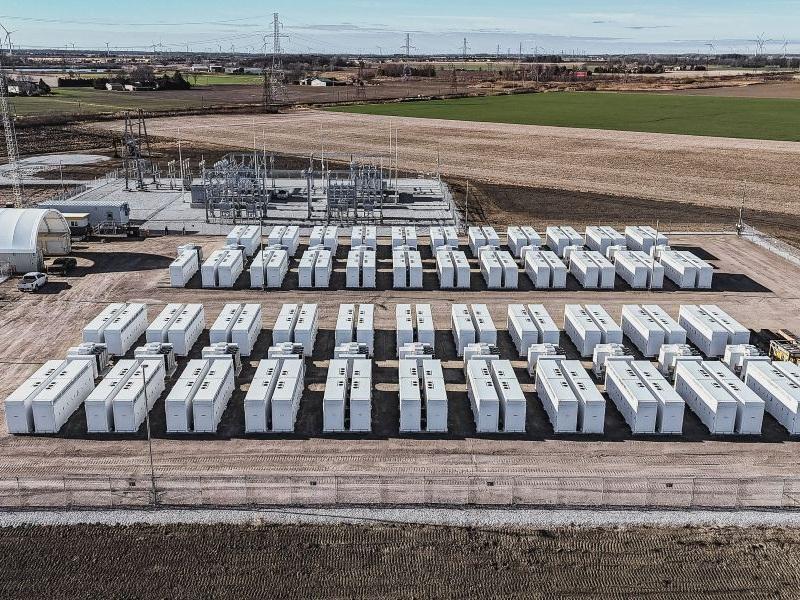 The Caisse de dépôt et placement du Québec (CDPQ), one of Canada’s largest institutional investors, has exceeded its climate change targets while making significant strides toward achieving key environmental, social and governance (ESG) initiatives.
The Caisse de dépôt et placement du Québec (CDPQ), one of Canada’s largest institutional investors, has exceeded its climate change targets while making significant strides toward achieving key environmental, social and governance (ESG) initiatives.
These are the principal findings contained in the CDPQ's 2024 Sustainable Investing Report released this month, which underscores how it has positioned itself as a global leader in sustainable investing.
The report details how Quebec's provincial wealth fund has already succeeded in reaching its climate goals during 2024, in advance of its previously announced 2025 and 2030 target dates.
"Having exceeded our original climate targets, CDPQ maintains its ambitious objective of seizing attractive investment opportunities in the context of the transition to a low-carbon economy while encouraging its portfolio companies to integrate climate-related risks and opportunities into their business practices and models," Bertrand Millot, CDPQ head of sustainability, said in an email interview with Sustainable Biz Canada.
"The transition to a low-carbon economy requires a multifaceted approach to be deployed across all sectors of activity. As at December 31, 2024, our portfolio has $79 billion in SBTi (Science Based Targets initiative)-compliant assets and another $15 billion in the process of becoming compliant."
One of the main architects of the CDPQ's climate change strategy, Millot emphasized how it is committed to what he describes as a "holistic" sustainable investing model. Accordingly, CDPQ intends to continue building on this momentum by leveraging its financial might to advance its decarbonization and ESG objectives.
He further observed the energy transition requires vast amounts of capital, both to fund new green solutions and support existing companies in their decarbonization efforts.
"(Institutional) Investors must put much greater emphasis on the decarbonization efforts of portfolio companies to ensure that their portfolios perform better in a climate change environment."
Key portfolio decarbonization highlights
The report highlighted several key performance indicators that offer further confirmation of how the CDPQ has been able to realize its sustainable investment objectives, while posting a 9.4 per cent return in 2024 combined with nearly $40 billion in net asset growth to $473 billion:
- $58 billion in low-carbon assets, including $15.5 billion in Québec, which exceeded the 2025 target of $54 billion, corresponding to an overall increase of $40 billion in low-carbon assets since 2017;
- a 69 per cent decrease in the carbon intensity of its portfolio since 2017, exceeding the 2030 target of a 60 per cent reduction;
- $330 billion in assets with a low-carbon footprint, or nearly 80 per cent of the Caisse's total portfolio; and
- $6.2 billion in transition assets to accelerate the decarbonization of the highest-emitting sectors.
According to Millot, CDPQ has pursued a vigorous, multi-pronged sustainable investment strategy that has outperformed expectations and validated its belief that sustainability and profitability go hand in hand.
"Our figures bear out the success of our strategy . . . Over five years, our approach to the energy transition has yielded a 50 per cent higher return compared to investments in the oil sector, an industry we exited in 2023."
With respect to its low-carbon asset mix, CDPQ has focused its attention on building up its portfolio in the renewable energy, sustainable mobility and real estate sectors.
"We are also investing selectively in developing sectors, such as energy storage and efficiency, as well as green hydrogen," Millot added.
ESG achievements
Beyond its success in decarbonizing its investment portfolio, CDPQ has made important strides with respect to social equity and corporate governance:
Social Progress
- 47 per cent of CDPQ employees and 42 per cent of its board are women;
- 27 per cent of its Canadian employees identify as visible minorities, ethnic minorities or Indigenous people; and
- 73 per cent of its actively managed public companies had at least 30 per cent women on their boards — a 78 per cent increase since 2020.
Governance
CDPQ also continued to drive ESG governance forward by engaging with 537 portfolio companies on sustainability practices and exercising its voting rights at 3,326 shareholder meetings to achieve 47 per cent support for shareholder proposals on environmental issues.
These efforts underscore CDPQ’s commitment to long-term value creation through a policy of responsible investing. Having already achieved or surpassed its previous climate targets, CDPQ is expected to outline an even more ambitious climate roadmap.
Millot confirmed new climate targets will be announced "before the end of 2025," thereby establishing new benchmark decarbonization and ESG targets for the remainder of the decade.
Sustainable investing as performance driver
The report confirms CDPQ's view that responsible investing is not merely ethical — it’s profitable. By allocating capital in alignment with a long-term commitment to a net-zero economy, CDPQ has managed to deliver long-term growth for its depositors, including six million Quebeckers relying on its pension fund management.
As Charles Emond, president and CEO of CDPQ, stated in remarks accompanying the release of the report:
"Sustainable investing is an integral part of our fiduciary duty. To achieve the best performance for our depositors, we must align our capital with strong business models that create value now and will do so in the future . . .
"We will need to continue finding the balance between ambition and pragmatism in our approach to take into account the current environment that companies are navigating. But always with a long-term view in order to have assets that are well positioned for the future."










